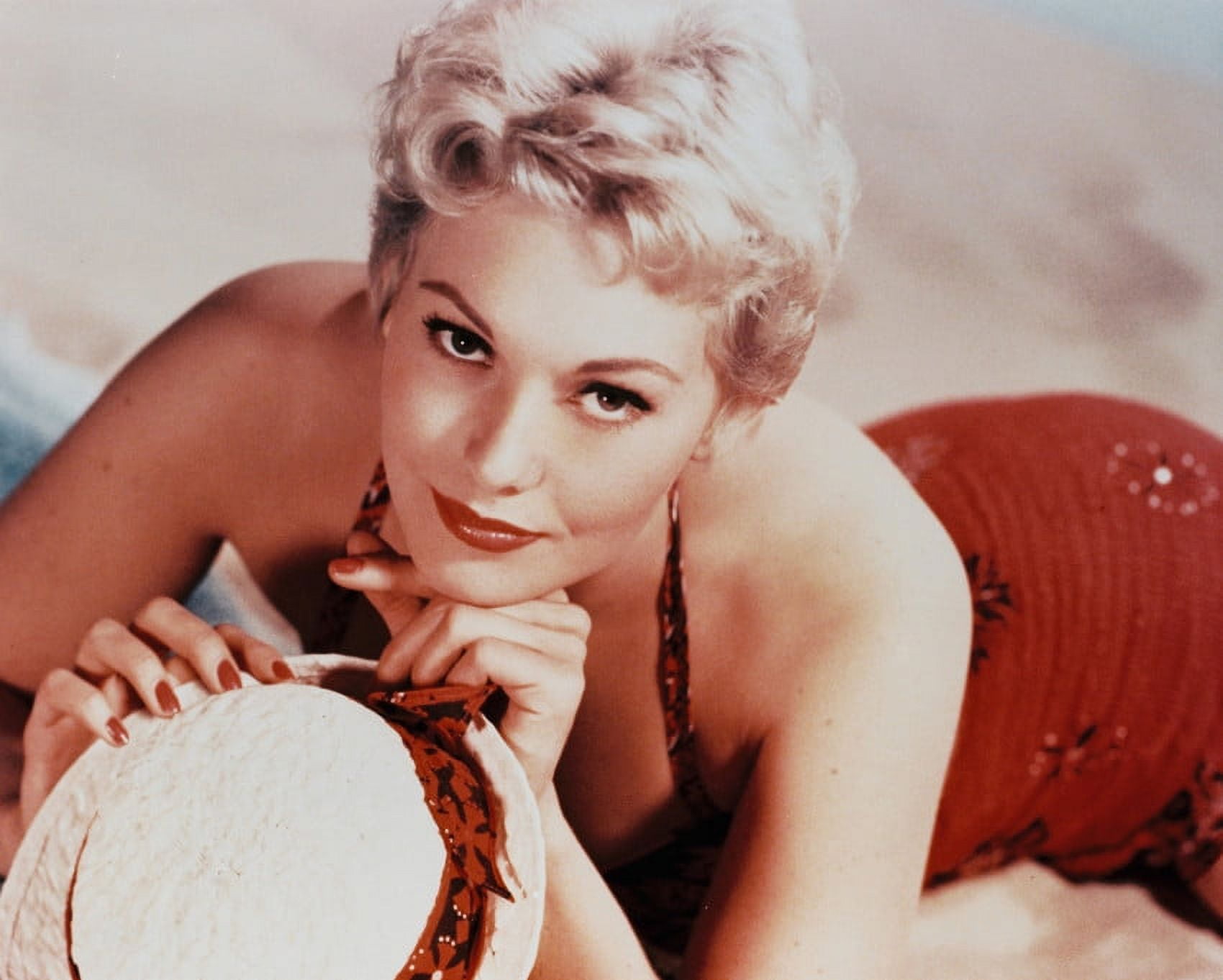When The Eddy Duchin Story premiered in 1956, audiences expected a sweeping biopic about one of America’s most celebrated pianists. What they did not expect, perhaps, was the emotional depth and graceful intensity brought to the screen by Kim Novak. Then still early in her career, Novak portrayed Marjorie Oelrichs—Duchin’s great love—with such sincerity and poise that the performance became a turning point, not only in her own filmography but in the emotional resonance of the film itself.

Marjorie Oelrichs, a fashionable New York socialite from a prominent family, is introduced as charming and composed, effortlessly elegant yet entirely human. Novak infused the role with quiet strength and warmth, presenting a woman both grounded in reality and touched by idealism. Her chemistry with Tyrone Power, who played Duchin, brought the romance to life without melodrama. Their on-screen relationship was subtle and believable, carried by glances, gentle humor, and a sense of shared understanding. Novak’s restraint allowed the love story to unfold naturally—giving the film its most poignant emotional thread.

Set in the glitz and glamour of 1930s New York, The Eddy Duchin Story charts Duchin’s meteoric rise from outsider to celebrated performer. Amid concert halls, grand ballrooms, and candlelit penthouses, Novak’s Marjorie became a symbol of quiet sophistication. Her scenes were marked by emotional intelligence—never overplayed, always intentional. Whether offering Duchin encouragement during moments of self-doubt or sharing a moment of stillness amid society’s bustle, Novak brought a deep humanity to a role that could have easily been overshadowed by the film’s musical and visual spectacle.

Perhaps the most heart-wrenching aspect of the film is Marjorie’s arc—falling in love, marrying Duchin, becoming pregnant, and ultimately passing away shortly after childbirth. In Novak’s hands, Marjorie’s fate is not exploited for drama; instead, it is portrayed with grace, restraint, and an aching sense of loss. Her final scenes linger in the audience’s mind, not because of overt tragedy, but because of how much feeling Novak conveys with a simple look, a soft-spoken farewell, or a moment of stillness.

For Kim Novak, The Eddy Duchin Story marked a crucial moment in her artistic journey. Until then, she had been celebrated primarily for her beauty—her blonde hair, striking features, and quiet allure. But this role proved she was far more than just a studio-molded starlet. With Marjorie, Novak showed she could deliver layered, emotionally rich performances that left lasting impressions. Her success in the film helped pave the way for future iconic roles, including her haunting performance in Hitchcock’s Vertigo (1958), which would cement her place in cinematic history.
Beyond the film’s narrative, Novak’s performance stands as a testament to the power of subtlety in acting. At a time when many female roles were written to support male leads or serve as glamorous distractions, Novak’s Marjorie offered a deeper, more emotionally honest portrayal of womanhood—loving, intelligent, and strong even in moments of quiet fragility.

Nearly seven decades later, Kim Novak’s performance in The Eddy Duchin Story continues to resonate with audiences and critics alike. It reminds us that true screen presence isn’t always about volume or spectacle; sometimes, it’s found in the quiet glow of sincerity and the courage to be understated. In portraying Marjorie Oelrichs, Novak gave us more than a character—she gave us a portrait of timeless grace and the kind of emotional truth that never goes out of style.